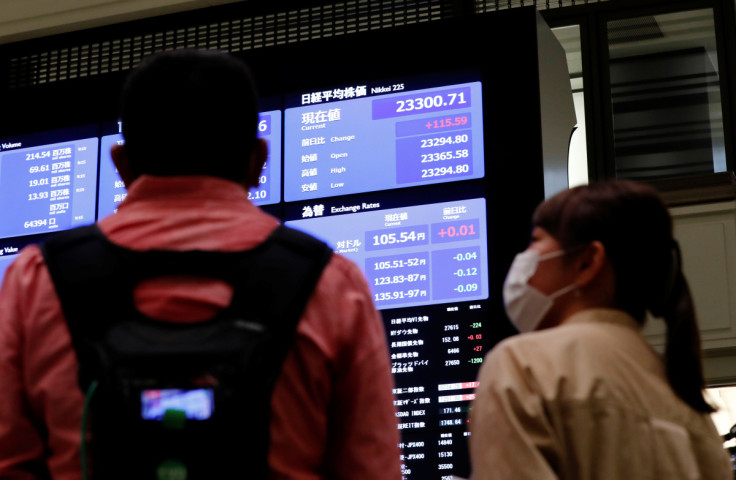Stocks pinned to lows as rate fears weigh
Asian stocks struggled to come off two-month lows on Wednesday.

Asian stocks struggled to come off two-month lows on Wednesday and the safe-haven dollar was firm as concerns about rising interest rates and slowing global growth kept the mood downbeat, while markets waited on economic data to chart the course ahead.
MSCI's broadest index of Asia-Pacific shares outside Japan touched its lowest since early January at 509.4, before crawling back to be flat at 511.46. Japan's Nikkei and S&P 500 futures each fell 0.5%.
Softer-than-expected growth and inflation data in Australia sent the Aussie dollar to a two-month trough at $0.6696 in early trade, but lifted the local stockmarket from lows as traders wound back interest rate expectations.
The Aussie is down almost 6% from an eight-month high it made in early February. [AUD/]
The U.S. dollar, which gained on most majors through February, was broadly steady elsewhere. With stocks having handed back January gains in February, while bonds slid on renewed worry about rising rates, traders are looking to the next flush of economic indicators to gauge the outlook.
China manufacturing data came in stronger than expected, lending a little support to the Chinese yuan. U.S. ISM PMI figures are due later in the day.
"The upcoming data cycle and anticipated forecast revisions by central banks, which will be presented over the next 2-3 weeks, will be crucial in forming the next leg of financial market trading," ANZ Bank analysts said in a note.
The mixed tone of data in the last few days seems to have lots of assets pausing at major chart levels.
Hotter-than-expected inflation readings in Europe overnight drove bond selling, before weaker-than-expected U.S. confidence figures offered perhaps a glimmer of hope that rate hikes are biting and are perhaps within striking distance of peaking.
Two-year Treasury yields, a guide to short-term U.S. rate expectations, are close to four-month highs, but at 4.8407% are below a November peak of 4.8830%. Benchmark 10-year yields rose three basis points to 3.9454% in Asia.
In currency markets, besides the Aussie's drop, moves were fairly muted. The euro held at $1.0556 and the yen drifted a touch lower to 136.46 to the dollar. [FRX/]
Commodities steadied as China demand hopes balance global growth concerns, and Brent crude sat at $83.45 a barrel.
Grains have slid as rains in parts of the U.S. winter wheat belt and optimism over a Russia-Ukraine export deal drove investors to close out long positions. [GRA/]
Geopolitics is also keeping investors on their toes. U.S. President Joe Biden's visit to Kyiv and Russian President Vladimir Putin's abandonment of the last remaining nuclear arms control treaty with the U.S. signaled a hardening of positions.
China, which signalled support for Russia by sending its top diplomat to Moscow last week, has issued a call for peace, though it has been met with scepticism and Washington has said in recent days it worries that China could send arms to Russia.
"Should Beijing send Russia arms, it risks a rapid geopolitical breaking of the world economy," said Rabobank's research head, Jan Lambregts. "Markets have not even begun to contemplate what this might mean."
(Editing by Himani Sarkar)
Copyright Thomson Reuters. All rights reserved.



















